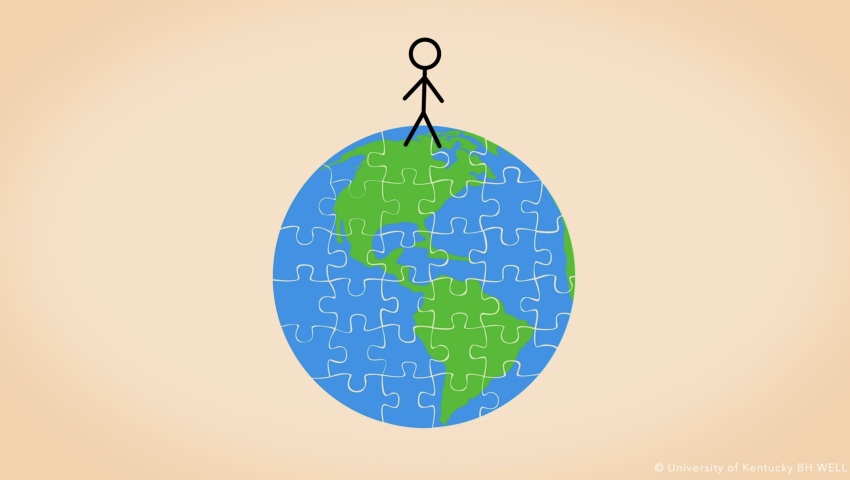
Staying Connected Enhances Social Wellness
Social wellness impacts the quality of one's life. This video addresses the human need for social wellness and the importance of staying connected with others. The benefits of social wellness are endless but some examples include greater focus on tasks, increased responsibility, and a more meaningful life.
Read Transcript
Social wellness is about relationships, how we interact with one another, and build a community. It involves establishing close, healthy, and trusting relationships at home, work, or in the community, which can provide us with support during difficult times. Social wellness requires building healthy relationships with others and learning to develop genuine connections with those around you. It also requires nurturing the connections we have made to enable them to grow into a strong bond over time. The benefits of social wellness are endless. A socially healthy person has a better quality of life and increased longevity. Our social connections/ networks also help us to stay focused on tasks, enhances responsibility, and allows others to hold you accountable. On the contrary, when someone is socially isolated or has few social connections, they have increased risks of developing negative physical and mental health outcomes including substance use and misuse, high blood pressure, heart diseases, mental illnesses such as depression and anxiety, and increased risks of dying by suicide.
To enhance social wellness, one needs to be self-aware, to have a non-judgmental attitude, and to have genuine acceptance for others. Having a positive attitude, listening to others, being willing to compromise, being caring, and empathetic also creates a safe support system. In addition, having good communication skills facilitates positive interactions with others in different settings and minimizes conflict. Most importantly, practicing self-care can strengthen our social connections and provide motivation for others to live a healthy lifestyle through exercising, eating healthy, understanding, and making better life choices.
With the current COVID 19 crisis, maintaining physically distancing has been shown to curb the spread of the virus. At such times while physically isolating, it is important to still stay connected with our networks and nurture the connections that we have. Though we may not be able to gather and have our usual face-to-face social interactions, it is important to stay in touch with family, friends, and other support systems through phone calls, video chats, and other creative ways using technology. One can also engage in an online community that shares similar interests. When taking walks, we could also wave and/or say hello to our neighbors while maintaining 6 feet distance. We could also use this time to strengthen the relationships with the people we live with and engage in acts of kindness in the community such as helping the elderly to grocery shop while still maintaining physical distance or making cloth masks for people in need. Most importantly, practicing self-care may help us manage our own stress and by nurturing ourselves, we are able to nurture others and our relationships.
Citations
Courtet, P., Olié, E., Debien, C., & Vaiva, G. (2020). Keep socially (but not physically) connected and carry on: preventing suicide in the age of COVID-19. The Journal of clinical psychiatry, 81(3), 0-0.
Saltzman, L. Y., Hansel, T. C., & Bordnick, P. S. (2020). Loneliness, isolation, and social support factors in post-COVID-19 mental health. Psychological Trauma: Theory, Research, Practice, and Policy.